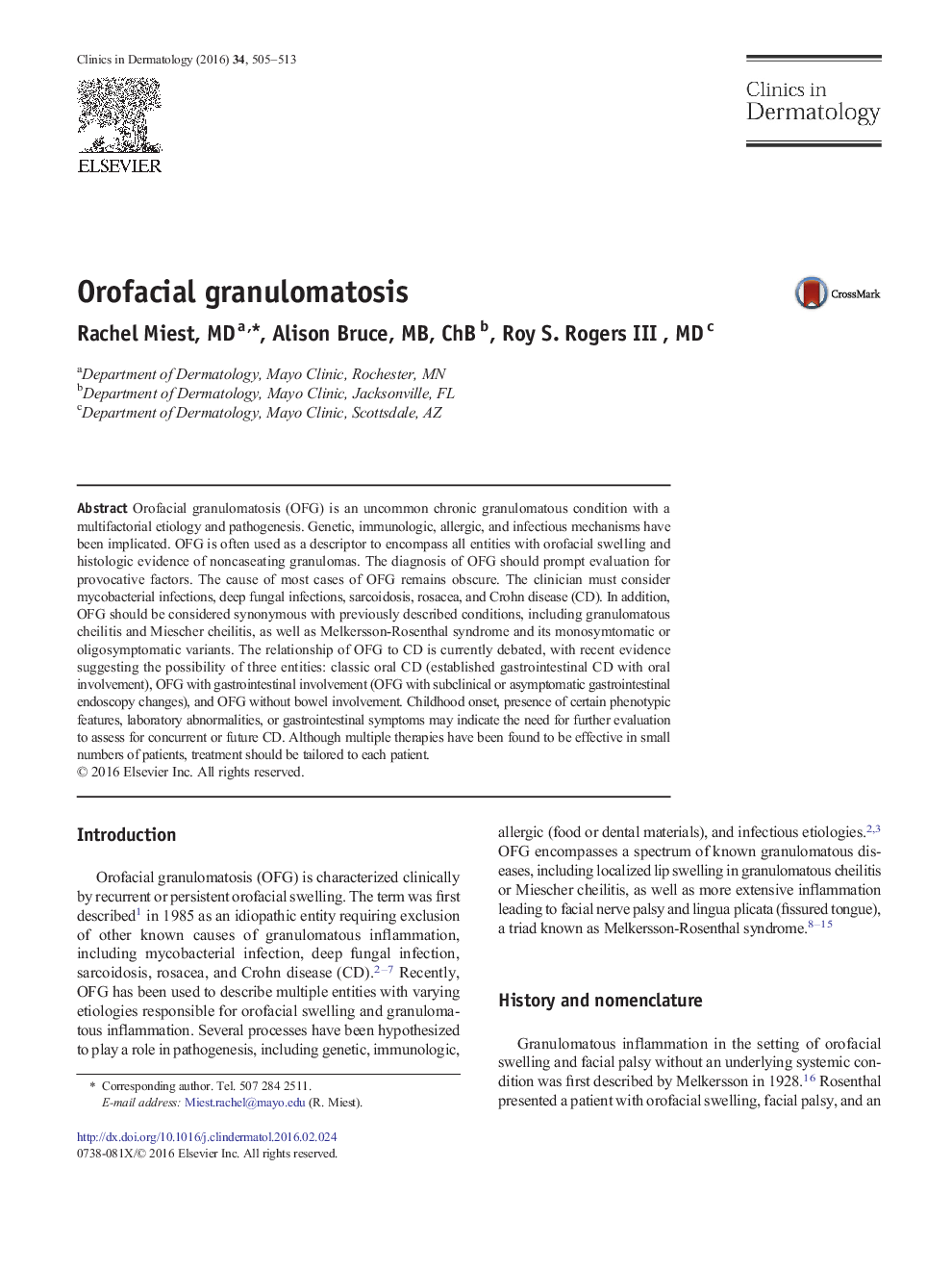| Article ID | Journal | Published Year | Pages | File Type |
|---|---|---|---|---|
| 3193962 | Clinics in Dermatology | 2016 | 9 Pages |
Orofacial granulomatosis (OFG) is an uncommon chronic granulomatous condition with a multifactorial etiology and pathogenesis. Genetic, immunologic, allergic, and infectious mechanisms have been implicated. OFG is often used as a descriptor to encompass all entities with orofacial swelling and histologic evidence of noncaseating granulomas. The diagnosis of OFG should prompt evaluation for provocative factors. The cause of most cases of OFG remains obscure. The clinician must consider mycobacterial infections, deep fungal infections, sarcoidosis, rosacea, and Crohn disease (CD). In addition, OFG should be considered synonymous with previously described conditions, including granulomatous cheilitis and Miescher cheilitis, as well as Melkersson-Rosenthal syndrome and its monosymtomatic or oligosymptomatic variants. The relationship of OFG to CD is currently debated, with recent evidence suggesting the possibility of three entities: classic oral CD (established gastrointestinal CD with oral involvement), OFG with gastrointestinal involvement (OFG with subclinical or asymptomatic gastrointestinal endoscopy changes), and OFG without bowel involvement. Childhood onset, presence of certain phenotypic features, laboratory abnormalities, or gastrointestinal symptoms may indicate the need for further evaluation to assess for concurrent or future CD. Although multiple therapies have been found to be effective in small numbers of patients, treatment should be tailored to each patient.
